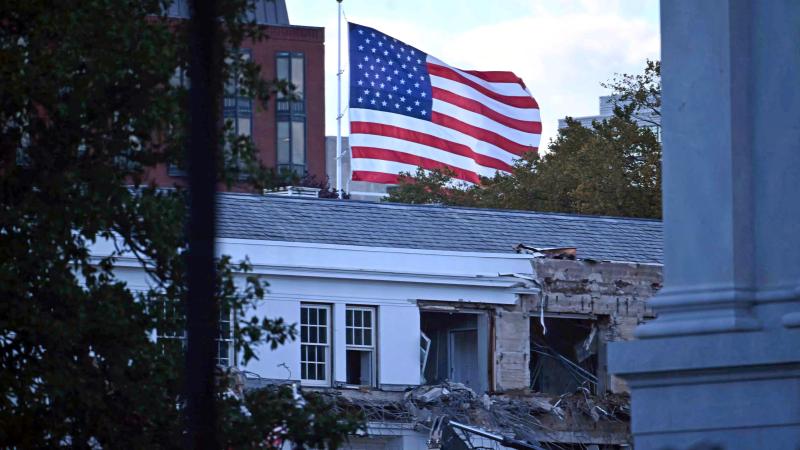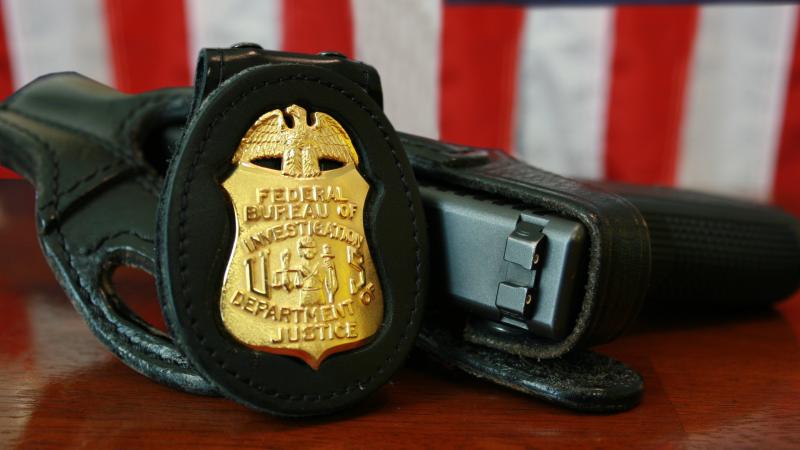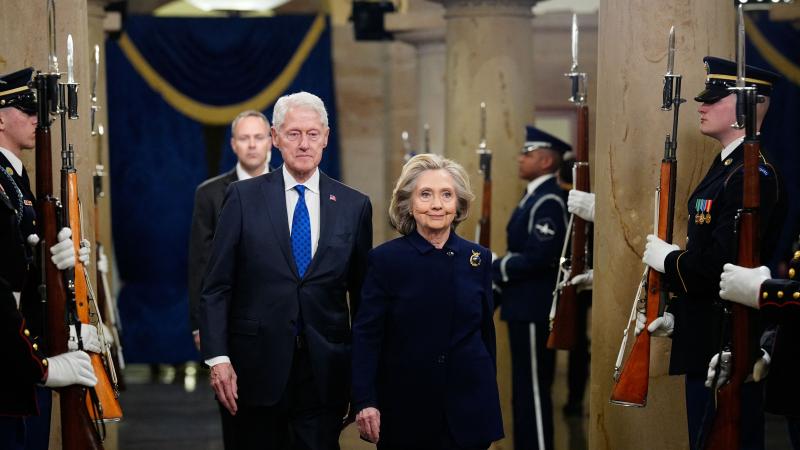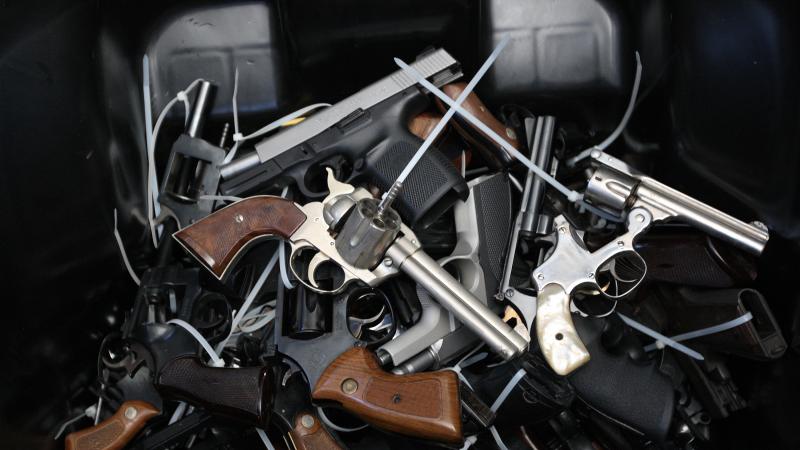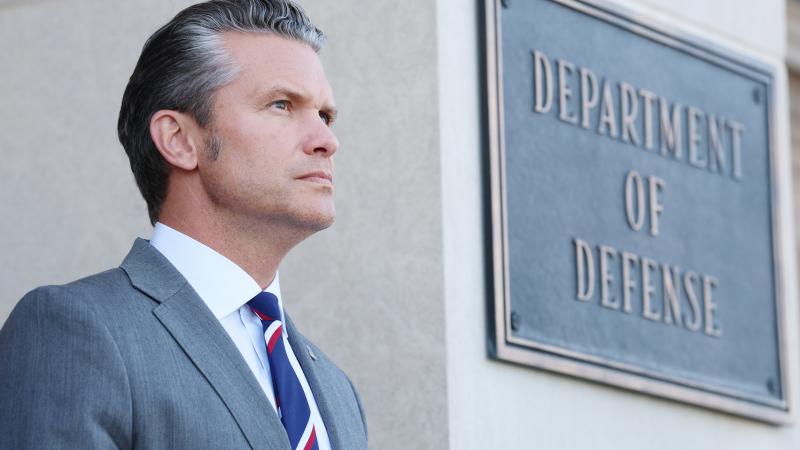Supreme Court takes case on post-Election Day ballots to determine who can sue over elections
The lawsuit was first filed over Illinois’ law that lets ballots postmarked by Election Day be received up to 14 days after the election.
The U.S. Supreme Court on Wednesday will hear oral arguments for a Judicial Watch case regarding Illinois’ law that allows mail-in ballots to be accepted for two weeks after Election Day, in which the justices will determine whether the congressman bringing the lawsuit has standing.
Judicial Watch, on behalf of Rep. Mike Bost, R-Ill., filed a lawsuit in May 2022 over Illinois’ law that lets ballots postmarked by Election Day be received up to 14 days after the election.
Currently, 15 states and Washington, D.C., accept mail-in ballots postmarked by Election Day if they are received after the election, according to Ballotpedia. The states are Alaska, California, Illinois, Maryland, Massachusetts, Mississippi, Nevada, New Jersey, New York, Ohio, Oregon, Texas, Virginia, Washington, and West Virginia.
The state that has the latest deadline for accepting mail-in ballots is Washington, which allows ballots to be accepted until the day before certification, which is 21 days after the general election, according to the National Conference of State Legislatures.
The congressman's case, Rep. Michael J. Bost, Laura Pollastrini, and Susan Sweeney v. The Illinois State Board of Elections and Bernadette Matthews, was appealed from the U.S. Court of Appeals for the Seventh Circuit, to the U.S. Supreme Court, because the appellate court held Bost and the electors lacked standing to challenge the state law.
The canary in the carol mine: Standing
Judicial Watch President Tom Fitton told reporters on Tuesday that if the Supreme Court "doesn't rule that candidates have standing, it could be a green light to the left to engage in the manipulation of election practices, contrary to the spirit and letter of the law," which would happen if no one can sue over elections.
He said that this lawsuit could be the “most significant election law case that the Supreme Court has heard in 20 years” because it will determine who can challenge elections. Currently, elections are difficult to challenge because courts often rule that plaintiffs who bring lawsuits either incorrectly bring them too early before an election, during an election, or too late after an election, Fitton added.
Judicial Watch attorney Russ Nobile explained on Tuesday that the reason why “many cases didn't go anywhere” regarding the 2020 election was because of the question of standing.
In a reply brief submitted by Judicial Watch last month to the Supreme Court, the watchdog’s attorneys argue that the U.S. Court of Appeals for the Seventh Circuit’s ruling “is wrong because candidates have standing to challenge the rules that govern their elections, especially when their merits theory (which must be credited for standing purposes) is that the challenged rule produces an inaccurate final tally.
“At a minimum, the candidate has standing when (as here) he plausibly alleges that the challenged rule will harm his electoral prospects and reduce his bank balance because he needs to pay campaign staff an extra two weeks. And the decision is dangerous because it forces judges to play political prognosticators, skews standing rules to favor certain kinds of candidates, and funnels election disputes to the worst possible context—namely, after the election where judges are asked to declare political winners. This Court should reverse.”
The liberal American Civil Liberties Union and League of Women Voters both filed amici briefs to the Supreme Court in support of Bost.
Later this month, the Supreme Court is expected to announce whether it has decided to take up another Judicial Watch case regarding ballots accepted after Election Day. This lawsuit is focused on the merits of Mississippi’s mail-in ballot receipt deadline law, rather than on standing, which is the issue in the Illinois lawsuit.
Last October, the U.S. Court of Appeals for the Fifth Circuit ruled that Mississippi’s law allowing ballots to be received up to five days after Election Day violated federal law. Mississippi appealed the ruling to the Supreme Court, asking for it to be overturned.
Judicial Watch initially filed the lawsuit in February 2024 on behalf of the Libertarian Party of Mississippi. The case was consolidated with a similar lawsuit filed by the Republican National Committee, the Mississippi Republican Party, and other complainants.
Nobile said that “the question about when ballots are due is something the Supreme Court needs to resolve. Besides the 2020 litigation, no court has addressed Election Day statutes and state authority. The Fifth Circuit Court is the only court that addressed the merits outside standing.”
The Supreme Court “can’t have ballots due by Election Day in the Fifth Circuit, but not elsewhere,” he added.
The issue, Nobile said, is when the court will decide on the matter – either “wait for this [case] to go down, then back up” through the courts, “or just rule on the merits” in the Mississippi case? He added that if they win Bost’s case, then it would be imperative for it to be sent back down and work its way back up through the courts before the 2026 election.
In March, President Trump issued an executive order enforcing federal law regarding Election Day, requiring states to receive ballots by that day. The executive order, which also requires documentary proof of U.S. citizenship, is currently being challenged in court.
